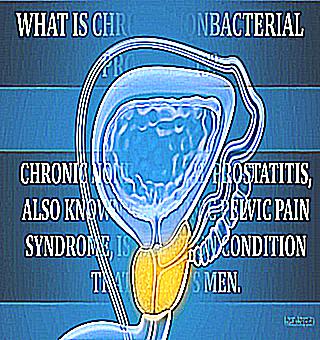Home >
Erectile Dysfunction >
Prostatitis in teenagers
Prostatitis in teenagers

There are a huge number of reasons as a result of which such an insidious disease occurs. The most common factor leading to prostatitis in a teenager is early sexual activity. Young people who want to become adults as quickly as possible start having sex. The culture and literacy of intimate contact is absent at this age.
In most cases, the first sexual contact occurs without the use of contraceptives. And this is the moment when you can easily get an infection and inflammation of the prostate gland.
Reasons
- Frequent sexual intercourse;
- Hypocooling of the lower abdomen and groin (youth, to look fashionable, dress, neglecting the weather);
- Frequent infections of a chronic nature (pharyngitis, disease teeth);
- Sitting at the computer for a long time;
- Dynamic, minimal active movements;
- Clothes that bring inconvenience (tight jeans), wearing tight-fitting underwear;
- Impaired eating habits;
- Smoking;
- Insufficient intake of nutrients, vitamins and minerals;
- Intestinal dysfunction (constipation);
- Acceptance of any drugs;
- Sleep disturbance;
- Frequent nervous breakdowns and stress.
Drinking alcoholic beverages increases the risk of prostatitis in a teenager. In the body, alcohol leads to a deterioration in blood flow to the organ, resulting in impaired nutrition and function of the prostate gland.
Overweight can also lead to this disease. Improper nutrition leads to obesity, which disrupts the normal balance of hormones in the body. Fat cells favorably contribute to the reproduction of estrogens (hormones inherent in women). Estrogen gradually replaces testosterone, because it is necessary for the normal function of the male reproductive organ - the prostate. Therefore, it is necessary to monitor your weight and not allow it to be overweight.
Also, congenital diseases of the prostate can lead to its abnormal function. Most often these are: incomplete development of the gland, abnormal structure of the vessels of the organ, underdevelopment of the sphincters. Adjacent organs that have impaired function negatively affect the prostate.
Clinical manifestations
It is urgent to identify and establish a diagnosis for further treatment of the pathological condition of the organ. At the initial stages, a patient with prostatitis may experience weakness, malaise, irascibility and pickiness to the environment. Symptoms of general intoxication in a young man are revealed.
When the lesions become acute, symptoms begin to appear, leading to discomfort and a deterioration in the quality of life. These manifestations include:
- Unpleasant sensations during the act of urination;
- Burning and mild itching in the penis;
- Frequent visits to the toilet;
- Feeling of incomplete urine output ;
- Reduced sexual activity.
Young people often lose their orgasms with prostatitis. In some cases, pain occurs regardless of urination or sexual intercourse. The pain appears at any time of the day and in different places (in the groin, scrotum, penis, perineum). If this pathological process is not detected and treated in time, then a developing young organism can be traumatized of a psychological nature. Young people lose confidence, close themselves off, protect themselves from society.
Treatment
Before you start medical treatment, you need to conduct a rectal examination. This is necessary to determine the stage and degree of development of this disease. If this examination is not enough, then other diagnostic measures are carried out. This may be a special laboratory culture, which makes it possible to identify the cause. Also bacteriological examination of the contents secreted from the gland.
In adolescence, recovery depends on timely treatment and detection of the disease. When diagnosing, if prostatitis is confirmed in adolescents of an infectious nature, the doctor prescribes a full course of antibacterial drugs. It is also necessary to stop the pain syndrome with painkillers. During therapy, it is necessary to use drugs that improve blood circulation in this organ and in the small pelvis. It is necessary to relax the sphincters that prevent the release of urine. Also, for the treatment of the patient, you need:
- Vitamins and minerals;
- Anti-inflammatory drugs;
- Medications that improve the metabolic process;
- Immunomodulators taken.
When stopping an acute process, prostate massage is recommended for a complete recovery. This method of treatment improves blood circulation in the pelvis, in particular, the prostate gland.The effect of a special laser and the use of transrectal wave hyperthermia also improves and restores the function of the affected organ.
In severe cases, doctors resort to surgical intervention. This method of treatment is carried out as a result of the complete absence, and the ability to excrete urine. Such surgery is called puncture epicystostomy.
Prevention
It is not difficult to avoid such a disease, adhering to certain rules. First of all, you need to protect yourself during sexual intercourse. Do not start an intimate life at an early age. You must have sex after the age of 18. Follow a healthy lifestyle, play sports, do not drink alcohol, and exclude absolutely all bad habits. Also necessary for prevention:
- Eating a normal healthy meal;
- Visit a urologist once a year for a preventive examination;
- No clothes that fit snugly in the crotch;
- Compliance with elementary standards of personal hygiene;
- Protect the genitals from the cold and dress according to the weather.
If symptoms appear, seek immediate medical attention. After all, if treatment is not started on time, the outcome can be quite unfavorable.



























